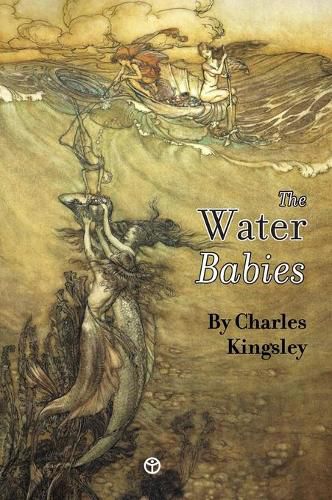Readings Newsletter
Become a Readings Member to make your shopping experience even easier.
Sign in or sign up for free!
You’re not far away from qualifying for FREE standard shipping within Australia
You’ve qualified for FREE standard shipping within Australia
The cart is loading…






This title is printed to order. This book may have been self-published. If so, we cannot guarantee the quality of the content. In the main most books will have gone through the editing process however some may not. We therefore suggest that you be aware of this before ordering this book. If in doubt check either the author or publisher’s details as we are unable to accept any returns unless they are faulty. Please contact us if you have any questions.
A grim, wonderful and classic fantasy tale for children and adults: A poor maltreated boy is working as a chimney-sweep. He drowns, but continue to live and learn in the magical water world. Perhaps he and his friends – drowned humans like him – can get a second chance among the living?
An important aspect of The Water-Babies, A Fairy Tale for a Land Baby (first published 1862-63) is its criticism of child labour; the novel is credited with easing the passage of the Chimney Sweepers Regulation Act of 1864, prohibiting the use of minors as chimney-sweeps.
This fairy tale for a modern age is also of interest in the history of science. Charles Kingsley (1819-75) was a famous author and a broad church priest of the Church of England, with a keen interest in biology and natural science; he was an early supporter of Darwinism. With its metamorphoses and evolving organisms, The Water-Babies popularized Darwin’s theory of evolution for children, though with a bent for Lamarckism – behaviour can be a driving force behind the evolution.
In his review of On the Origin of Species (1859) a few days before the release, Kingsley explained that he long since, from watching the crossing of domesticated animals and plants, learnt to disbelieve the dogma of the permanence of species. Kingsley and Charles Darwin became friends. In the next edition of his book, Darwin made a reference to Kingsley, when he stated that A celebrated author and divine has written to me that ‘he has gradually learnt to see that it is just as noble a conception of the Deity to believe that He created a few original forms capable of self-development into other and needful forms, as to believe that He required a fresh act of creation to supply the voids caused by the action of His laws’.
$9.00 standard shipping within Australia
FREE standard shipping within Australia for orders over $100.00
Express & International shipping calculated at checkout
This title is printed to order. This book may have been self-published. If so, we cannot guarantee the quality of the content. In the main most books will have gone through the editing process however some may not. We therefore suggest that you be aware of this before ordering this book. If in doubt check either the author or publisher’s details as we are unable to accept any returns unless they are faulty. Please contact us if you have any questions.
A grim, wonderful and classic fantasy tale for children and adults: A poor maltreated boy is working as a chimney-sweep. He drowns, but continue to live and learn in the magical water world. Perhaps he and his friends – drowned humans like him – can get a second chance among the living?
An important aspect of The Water-Babies, A Fairy Tale for a Land Baby (first published 1862-63) is its criticism of child labour; the novel is credited with easing the passage of the Chimney Sweepers Regulation Act of 1864, prohibiting the use of minors as chimney-sweeps.
This fairy tale for a modern age is also of interest in the history of science. Charles Kingsley (1819-75) was a famous author and a broad church priest of the Church of England, with a keen interest in biology and natural science; he was an early supporter of Darwinism. With its metamorphoses and evolving organisms, The Water-Babies popularized Darwin’s theory of evolution for children, though with a bent for Lamarckism – behaviour can be a driving force behind the evolution.
In his review of On the Origin of Species (1859) a few days before the release, Kingsley explained that he long since, from watching the crossing of domesticated animals and plants, learnt to disbelieve the dogma of the permanence of species. Kingsley and Charles Darwin became friends. In the next edition of his book, Darwin made a reference to Kingsley, when he stated that A celebrated author and divine has written to me that ‘he has gradually learnt to see that it is just as noble a conception of the Deity to believe that He created a few original forms capable of self-development into other and needful forms, as to believe that He required a fresh act of creation to supply the voids caused by the action of His laws’.